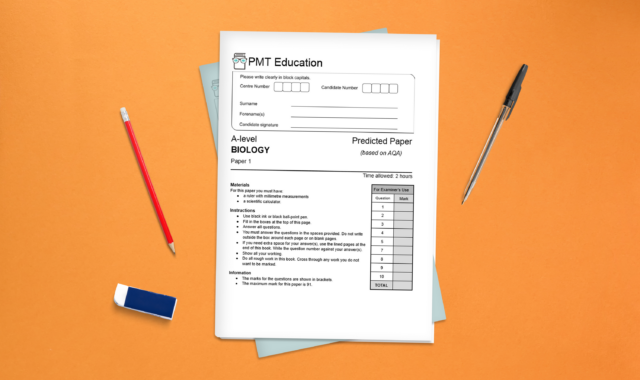Effective time management is easily one of the most valuable transferable skills a tutor can master. Yet, learning how to manage your time effectively often feels like a process of trial and error.
During the final year of my part-time Master’s degree, I found myself juggling four part-time jobs alongside my studies. Whilst I am by no means an expert at balancing numerous roles and responsibilities – life’s unpredictabilities still happen! – I’ve developed several techniques that have helped me manage part-time tutoring alongside studies and other commitments. In this post, I’ll share five tried-and-tested strategies to help you manage your time effectively as a part-time tutor.
1. To-do lists
I honestly don’t know where I’d be without a to-do list. I create one daily, with tasks ranging from small personal errands like putting the laundry on to more specific tasks like researching the context of a new text.
During the final year of my Master’s, to-do lists were essential. I was often dealing with pretty daunting tasks, alongside teaching roughly 20 hours a week and managing three other part-time jobs. Breaking these huge tasks down into smaller, more manageable bite-sized pieces allowed me to properly prioritise. I could map out the constituent elements of larger tasks and slot them into gaps between my teaching hours and other responsibilities. This not only kept me organised but also made each task feel more achievable.
2. Colour coding
Colour coding might not work for everyone, but I found it to be a simple and effective way to visualise how I was balancing my time. My university classes and tasks were in one colour, and each of my part-time jobs was in another. This system made it easy to see at a glance how much time I was dedicating to each responsibility and ensured that I wasn’t neglecting any one area.

3. Dedicated days
Where possible, I tried to dedicate specific days to specific tasks. For example, I currently work my regular job on Mondays, Wednesdays, and Fridays. Previously, I tried to get most of my university work done on these days, as this is when I had classes scheduled. I reserved tutoring for the evenings and set aside a few hours on Sundays for lesson planning.
Of course, things don’t always go according to plan, and flexibility is sometimes necessary. I also recognise that I’m fortunate to have the ability to structure my responsibilities this way. I’ve found that being able to do so has allowed me to balance numerous roles.
4. Preparation
When it came to both university and tutoring, I tried to establish and plan for deadlines as early as possible. This allowed me to plan the weeks (and sometimes even months) leading up to them, avoiding any last-minute rushes to complete a piece of work or prepare for a lesson. As an English Literature student, I often had a lot of reading to complete by certain weeks. By knowing exactly what needed to be read and by when, I could spread this reading out evenly.
Similarly, when it gets to February, I create a lesson schedule for all of my Year 11 students. This details their exam dates, when our lessons will take place, and what we will cover in each lesson. The benefits are twofold: my students know what we’re studying and can see how long they have until their exams, which reassures them that we’ll get through everything we need to. For me, it lightens the load of lesson planning.

5. Clear cut-off times
When balancing so many roles and responsibilities, I quickly realised the importance of setting strict cut-off times. Whether that was stopping tutoring at a particular time or closing a book to focus on my next task, this allowed me to complete my to-do lists and fully dedicate myself to the task at hand.
This wasn’t always easy. Almost all of my roles have primarily been home-working, which makes it tempting to pick up my laptop and work late into the evening. To maintain strong relationships with the people I work with, I’ve also had to be upfront about my multiple responsibilities. Over the years, though, I’ve found that these boundaries have made me feel much happier and healthier. As a knock-on effect, I’m better at each of my jobs.
These strategies aren’t foolproof, and they’re certainly not the only ways to manage part-time tutoring alongside other responsibilities. However, I’ve found that each of them – often in combination – has helped significantly over the four years I’ve been juggling tutoring, studying, and working.
I think one of the most important things to ‘schedule in’, so to speak, is time to yourself. Time away from tutoring, studying, and working. Time to actually decompress. At the beginning of my career, I often felt guilty for not being available 24/7 for my students, but I’ve since realised that this just isn’t sustainable. It may feel strange to schedule in ‘downtime’, but I know that I simply won’t make time for it otherwise. This is something that I still struggle with, but I’m getting better at it. After all, I don’t just want to teach my students about Shakespeare or Dickens – I want to be able to equip them with a plethora of life skills.
In applying for numerous full-time jobs, I’ve found that time management and prioritisation are consistently some of the top skills that employers look for. I’ve always been commended on my time management skills, and interviewers are keen to know how you’ve managed your time rather than the fact that you have. I’ve found these small adjustments to be useful in explaining just how I managed that very stressful and chaotic year of my life, and I hope that they’ll help you manage your part-time tutoring and other responsibilities, too.
Looking for more tips on tutoring and time management? Check out our article on time management tips for online tutors.







Comments